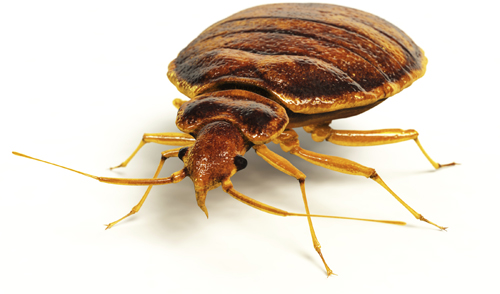Sorts Of Parasite Control: Which Technique Is Right for Your Invasion?
When encountered with a parasite infestation, the option of a suitable technique for insect control is critical in properly managing the situation. By discovering the various types of insect control approaches offered, people can make informed choices tailored to their one-of-a-kind conditions, ensuring an extra efficient and sustainable result in pest eradication.
Chemical Bug Control
Chemical bug control involves the use of synthetic or normally acquired chemicals to manage and get rid of pest populations efficiently. This approach is typically used in agriculture, forestry, and residential setups to combat a wide variety of insects, consisting of weeds, pests, and rodents. The usage of chemical pesticides can supply fast and targeted solutions to pest infestations, making it a prominent selection for many people and organizations.
One of the key benefits of chemical parasite control is its capacity to promptly eliminate pests, minimizing the danger of damages to crops, residential or commercial property, and human health. By making use of details chemicals that target specific parasites, this approach can successfully regulate invasions while minimizing harm to helpful organisms and the setting when applied appropriately.
However, the use of chemical bug control likewise increases worries regarding potential adverse results on non-target species, water sources, and human wellness. It is essential to follow safety and security guidelines, use chemicals responsibly, and think about alternate insect control methods to decrease these risks and make certain sustainable pest monitoring techniques.
Biological Bug Control
Organic bug control, also known as biocontrol, makes use of living microorganisms to lower and take care of pest populaces naturally. By utilizing the bug's all-natural killers or microorganisms, organic bug control uses a sustainable and ecologically pleasant remedy to pest administration.

Mechanical Parasite Control
Utilizing physical and manual techniques to handle parasite populations, mechanical parasite control uses an alternate method that does not depend on making use of living organisms or artificial chemicals. This method entails the usage of barriers, catches, or other devices to physically prevent or remove bugs. By blocking bug access factors or establishing traps to capture them, mechanical parasite control can properly reduce problems without introducing chemicals into the atmosphere.
One common instance of mechanical bug control is the usage of mesh screens on windows and doors to stop insects from going into buildings. This easy yet efficient method functions as a physical obstacle, keeping insects out while enabling appropriate ventilation. Furthermore, devices like mousetraps, fly swatters, and ultrasonic repellents drop under the mechanical pest control category.
While mechanical parasite control methods can be labor-intensive and require regular surveillance and maintenance, they offer a lasting and ecologically friendly option for managing parasite infestations. By incorporating different mechanical methods, homeowner can create a thorough insect control technique that decreases dependence on chemical pesticides.
Physical Bug Control

Some common physical insect control techniques include the usage of obstacles such as screens or internet to avoid insect entrance, traps YOURURL.com to record and eliminate pests, and hand-picking to physically get rid of bugs from plants or frameworks. Furthermore, methods like warm treatments can be made use of to manage bugs like bed bugs by elevating the temperature to levels that are lethal to the bugs.
Physical bug control is specifically beneficial in integrated parasite administration (IPM) methods, where numerous insect control methods are incorporated for reliable bug management while lessening the use of chemicals. By utilizing physical insect control techniques, individuals can effectively resolve bug infestations with very little environmental impact.
Integrated Bug Management
When implementing physical parasite control methods as part of pest administration strategies, Integrated Insect Management (IPM) arises as a thorough approach that leverages various methods to effectively control pest populaces. IPM focuses on long-lasting avoidance of bugs with a combination of biological, social, physical, and chemical devices customized to specific bug concerns. By incorporating multiple control strategies, IPM aims to minimize the dangers related to bugs while also lowering reliance on chemical solutions.
One key element of IPM is the focus on surveillance and examining pest populaces to establish the most proper control approaches. This aggressive approach permits for early intervention and targeted approaches, causing more efficient insect management. Additionally, IPM advertises environmentally pleasant practices by prioritizing non-chemical control Find Out More techniques and only using chemicals as a last option.
Final Thought

By utilizing the insect's natural killers or pathogens, organic subterranean termite treatment pest control supplies a sustainable and ecologically pleasant solution to pest management. - Kings pest control cincinnati oh
Using physical and hand-operated methods to handle parasite populations, mechanical bug control provides a different method that does not rely on the use of living organisms or synthetic chemicals.A reliable technique to handling insect populaces without depending on chemical or organic techniques includes the usage of physical bug control methods.When implementing physical bug control approaches as part of bug management strategies, Integrated Pest Monitoring (IPM) emerges as a detailed technique that leverages various methods to effectively control pest populaces. Chemical pest control entails the usage of pesticides, biological parasite control uses all-natural killers, mechanical parasite control includes physical barriers, physical bug control consists of capturing or removing parasites, and incorporated pest administration incorporates numerous methods for an alternative approach to pest control.
Comments on “Comprehensive Kings Pest Control Services Cincinnati OH”